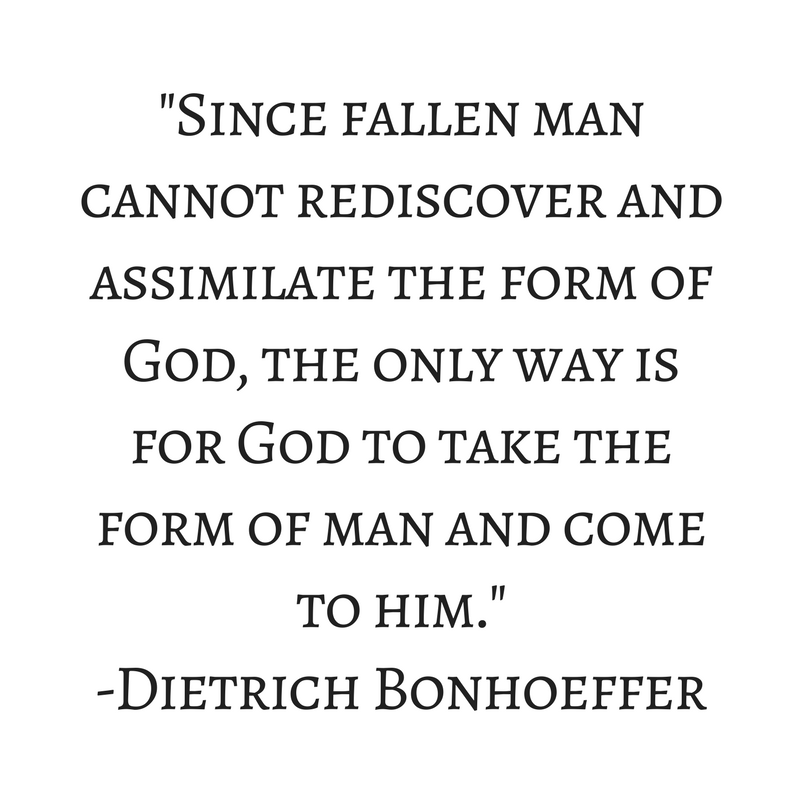
In our world, when someone seeks to exalt themselves, they are usually doing it at the expense of pushing others down. But God is not like this. He’s not like kids on a playground.
I remember quite vividly the winter months of elementary school during recess. We would climb the massive snow mounds left by the plow trucks and try to claim the tops for ourselves. You may know this game as “King of the Mountain.” We should have referred to it as “Climb the Cleveland Ice Castles Full of Cut Throat Kids.”
It may be a little long and not as catchy, but it sure would have been more accurate. Whatever it took to claim the spot of fame at the top, we did it without a second thought. Best friend or not, Nick Sebastian was going down that steep snow mound and hitting every skin scrapping block of ice on his way so he wouldn’t even consider crossing me again. And when I was on top, I gloated over all those former friends below . . . until someone blind-sided me as well and I found myself next to Nick, face down in the snow trying to apologize for my betrayal. You see, at recess, just like in our fallen world, the way people get to the top of the mountain is by tossing others off.
Thankfully, though, the God who is love is nothing like the people of the world. People exalt themselves by putting others down. God exalts himself by lifting others up. In fact, check out the way Jesus was exalted:
[Jesus], being in very nature God,
did not consider equality with God something to be used to his own advantage;
rather, he made himself nothing
by taking the very nature of a servant,
being made in human likeness.
And being found in appearance as a man,
he humbled himself
by becoming obedient to death—
even death on a cross!
Therefore God exalted him to the highest place
and gave him the name that is above every name,
that at the name of Jesus every knee should bow,
in heaven and on earth and under the earth,
and every tongue acknowledge that Jesus Christ is Lord,
to the glory of God the Father. (Philippians 2:6-11)
Jesus, God himself, came down the mountain and literally died for all of us backstabbing sinners. But he came down to earth not only to save it but to be exalted through saving it.
Jonathan Edwards states, “God in seeking his glory seeks the good of his creatures.” God is so amazing, so full of everlasting love and kindness that not only has he placed himself at the center of everything, he has created our reality in such a way that he is exalted best through him producing our good. God pleases himself, which is his highest aim, by being unbelievably lavish and loving towards humans.
Don’t Sever Your Lifeline
The temptation is to believe that all the good we get when we glorify God is the main point of glorifying God. If we embrace the lie that God’s ultimate motivation in doing us good is simply to do us good, we rob ourselves of the joy only God can give when we lose our life for him.
 As Tim Keller explains in his sermon, The Search for Happiness, happiness in the Bible is always a bi-product of seeking to honor God more than seeking our own happiness. The Bible never says, “Blessed is he who thirst and hunger for blessedness.” It always says the person who is blessed is the one who seeks something greater than their own happiness, something more God honoring (Matthew 5: 3-10). If you seek the worship of God in your life more than personal happiness, you will accomplish both. If you only seek personal happiness and not the worship of God, you will accomplish neither. Notice, the people who are happiest in life are those who have stopped trying so hard to be happy and have begun to live for something greater. As C.S. Lewis stated:
As Tim Keller explains in his sermon, The Search for Happiness, happiness in the Bible is always a bi-product of seeking to honor God more than seeking our own happiness. The Bible never says, “Blessed is he who thirst and hunger for blessedness.” It always says the person who is blessed is the one who seeks something greater than their own happiness, something more God honoring (Matthew 5: 3-10). If you seek the worship of God in your life more than personal happiness, you will accomplish both. If you only seek personal happiness and not the worship of God, you will accomplish neither. Notice, the people who are happiest in life are those who have stopped trying so hard to be happy and have begun to live for something greater. As C.S. Lewis stated:
The woman who makes a dog the center of her life loses, in the end, not only her human usefulness and dignity but even the proper pleasure of dog-keeping. The man who makes alcohol his chief good loses not only his job but his palate and all power of enjoying the earlier levels of intoxication. It is a glorious thing to feel for a moment or two that the whole meaning of the universe is summed up in one woman – glorious so long as other duties and pleasures keep tearing you away from her. But clear the decks and so arrange your life that you will have nothing to do but contemplate her, and what happens? Of course this law has been discovered before, but it will stand re-discovery. It may be stated as follows: every preference of a small good to a great, or a partial good to a total good, involves the loss of the small or partial good for which the sacrifice was made.4
To search for the good God desire for us but to lose focus of the bigger purpose of glorifying God is to lose everything in the process. If we confuse the order and start elevating our personal satisfaction over our glorification of God, we lose both. The truth is what sets us free. Believing in what God does but rejecting the reasons why he does them robs us of the full truth. Again, as C.S. Lewis explains, “If you look for truth, you may find comfort in the end; if you look for comfort, you will not get either comfort or truth, only soft soap and wishful thinking to begin, and in the end, despair.”5
If we separate God’s motive from his blessings, we lose the true blessing in the process. The cure to our deepest discontentment is to seek our ultimate contentment in magnifying God. If our good becomes the center rather than his glory, we forfeit our good in the process.
We have been thrown a lifeline as we flounder in a sea of self-centeredness. The lifeline is the grace from God to live for pleasing him. When we live from this grace for his glory, God reels us in from the waves of narcissism so we can be free to live above the surface of the selfishness we are drowning in.
But when we think that this lifeline was thrown to us just for us, we are basically taking a sharp knife from our back pocket and severing the very rope pulling us into safety. If we hope to keep grasping this lifeline, this solution to all discontentment, we must realize that even the lifeline, the benefits and blessings God gives us when we glorify him, are actually for him.
When God delivers us, he does it so we can praise him, “Set me free from my prison, that I may praise your name” (Psalm 142:7). Everything, even our good, is actually for his glory.